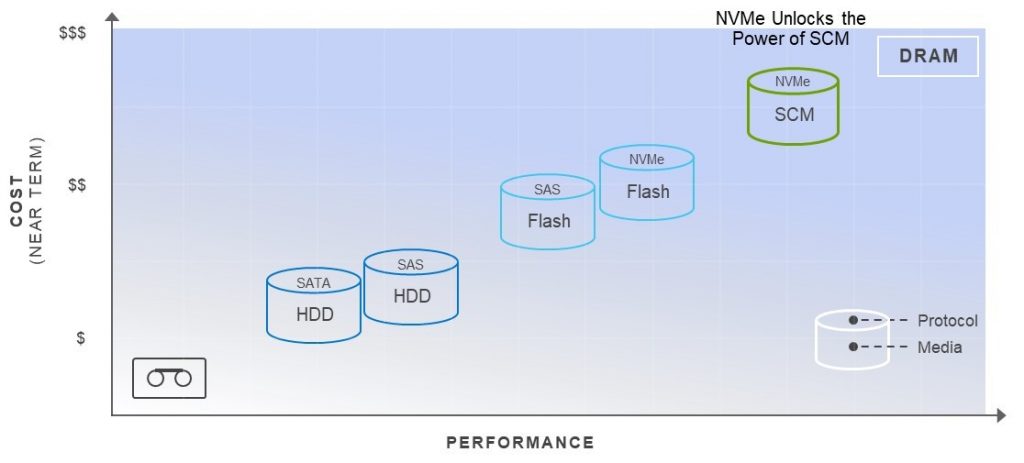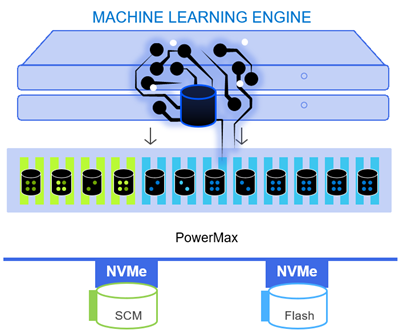5 Questions to ask Pure while at Pure//Accelerate 2019
- September 14, 2019
Well it’s that time of year again. When fall arrives, so do many of the storage vendors annual conferences. As some of you may be aware, Pure Storage will soon be holding their annual ‘Pure//Accelerate 2019’ conference in Austin, Texas, very close to where Dell Technologies started ~35 years ago. This fact got me thinking about the different paths Dell Technologies and Pure Storage have taken in the recent years and the decisions we’ve both made to better serve our customers.
If I was a customer trying to decide which company would be a better technology partner for years to come, I would have several questions. So, I decided to write down some of the questions I think customers should be asking of Pure Storage at their conference:
When will FlashArray be able to ‘scale out’?
Pure Storage’s current FlashArray architecture uses a scale-up ONLY, dual controller, active-passive, design. Dell Technologies has storage platforms in our portfolio that can scale up and/or scale out to meet customers’ requirements. We believe that our portfolio provides more choice and a good opportunity for customers to match the right platform for the workload and use cases they need. I am interested in hearing Pure’s point of view on the benefits of a scale-up only architecture in the enterprise market when faster media types (like NVMe and now SCM) have started to shift the performance bottleneck back to the controller.

Will Pure continue to use proprietary flash modules or adopt industry standard media?
Pure has developed its own proprietary NVMe modules as part of their FlashArray architecture. If I were a FlashArray customer I would want to understand the risks of committing to a proprietary technology vs. leveraging industry standard NVMe drives. If you believe the past is a good guideline, then proprietary systems don’t have a good track record. Also, I’d like to understand how the innovation cycle of their NVMe modules will match the rest of the industry’s innovations. Last, but not least, what are the implications on supply chain management and availability in the long run for their proprietary components. If/when Pure decides to add SCM (Storage Class Memory) support, will that be a proprietary design also?
When will Pure be adding intelligent storage tiering to their platforms?
With new and faster media types coming to market – such as SCM (Storage Class Memory), QLC (Quad Level Cells) drives, etc – customers will be able to place their most critical data according to the media type IF the array has intelligent tiering, like we have today at Dell Technologies (as an example, PowerMax just launched full support for SCM media, see the launch video here). If Pure releases SCM and/or QLC in their platforms, will they also be adding intelligent tiering, or any tiering at all, so customers can get the most from their investment without being bottlenecked by the slowest media installed?

What is the future of FlashBlade given the recent acquisitions Pure has made (e.g. Compuverde)?
It would be interesting to know how many customers are actually buying FlashBlade arrays and what the actual use cases are. I have seen it positioned as File and Object primary storage, but also as a backup target with fast restore. In addition, are there any plans to improve FlashArray file services capabilities with the acquisition of Compuverde? If so, what are the implications on the future of FlashBlade as a File and Object primary storage array?
Does paying a premium for Evergreen Gold to get free controllers every three years ALSO provide a performance improvement guarantee from the new controllers?
As other storage vendors have also noticed, Pure’s performance improvements from one controller generation to the next have not been as big as one might have expected. Keep in mind that if you bought into the Evergreen Gold messaging then, by the time you get your new controllers you have already paid for 6 years of Evergreen Gold, whether the performance benefit turns out to be 50% or only 5% (remember, you don’t get your ‘free’ controllers until you renew your 3-year Evergreen Gold contract for another 3 years). We feel this is something customers need to consider asking if they will be committing to a 6-year support program like Evergreen Gold.
Enjoy your time in Austin
We hope you have a great time in our hometown of Austin. I want to take the opportunity to encourage you to reach out to your Dell Technologies representative if you would like to learn more about our solutions while you are in town, we will be happy to meet with you.
Have a great day.